The Engineering Technology Department is a part of Northern Michigan University’s College of Health Sciences and Professional Studies.
We provide students with the required technical knowledge and professional skills to make an immediate impact when employed in industry and to become successful leaders and innovators throughout their careers.
Campus Location
The Engineering Technology Department office is in office suite 105 of the Jacobetti Complex, located at 2296 Sugarloaf Avenue, which can be accessed from either Wright Street (traffic circle at Wright and Sugarloaf) or Hawley Street (County Road 550). See the campus map.
Faculty

Seth Norberg
Department Head and Associate Professor
senorber@nmu.edu 906-227-2164Office Location:
105 D1 Jacobetti Complex
Degrees:
- BSME, MSME, Ohio State University
- PhD, University of Michigan
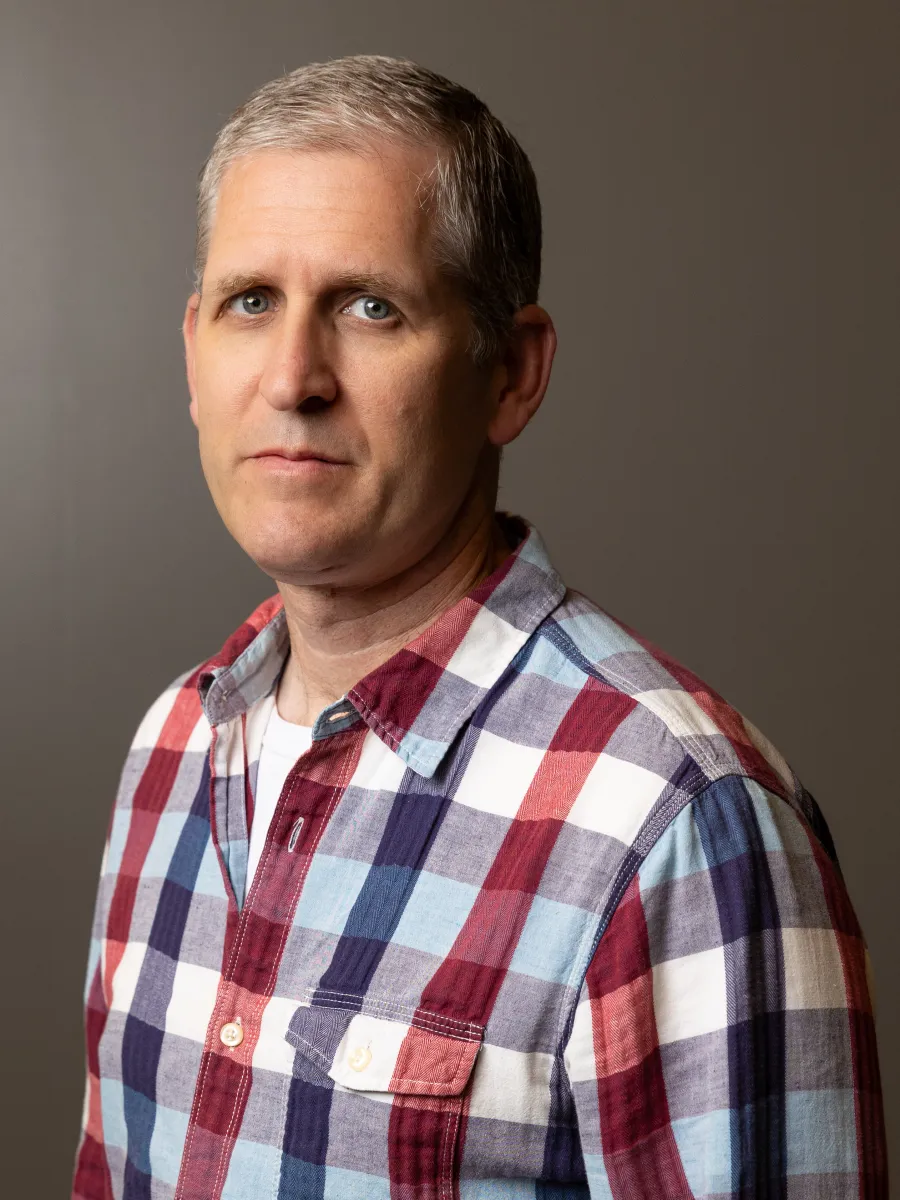

Robert A. Marlor
Professor
rmarlor@nmu.edu 906-227-2897Office Location:
105 B4 Jacobetti Complex
Degrees:
- A.S., Grand Rapids Junior College
- B.S., M.S., Ph.D., Michigan Technological University
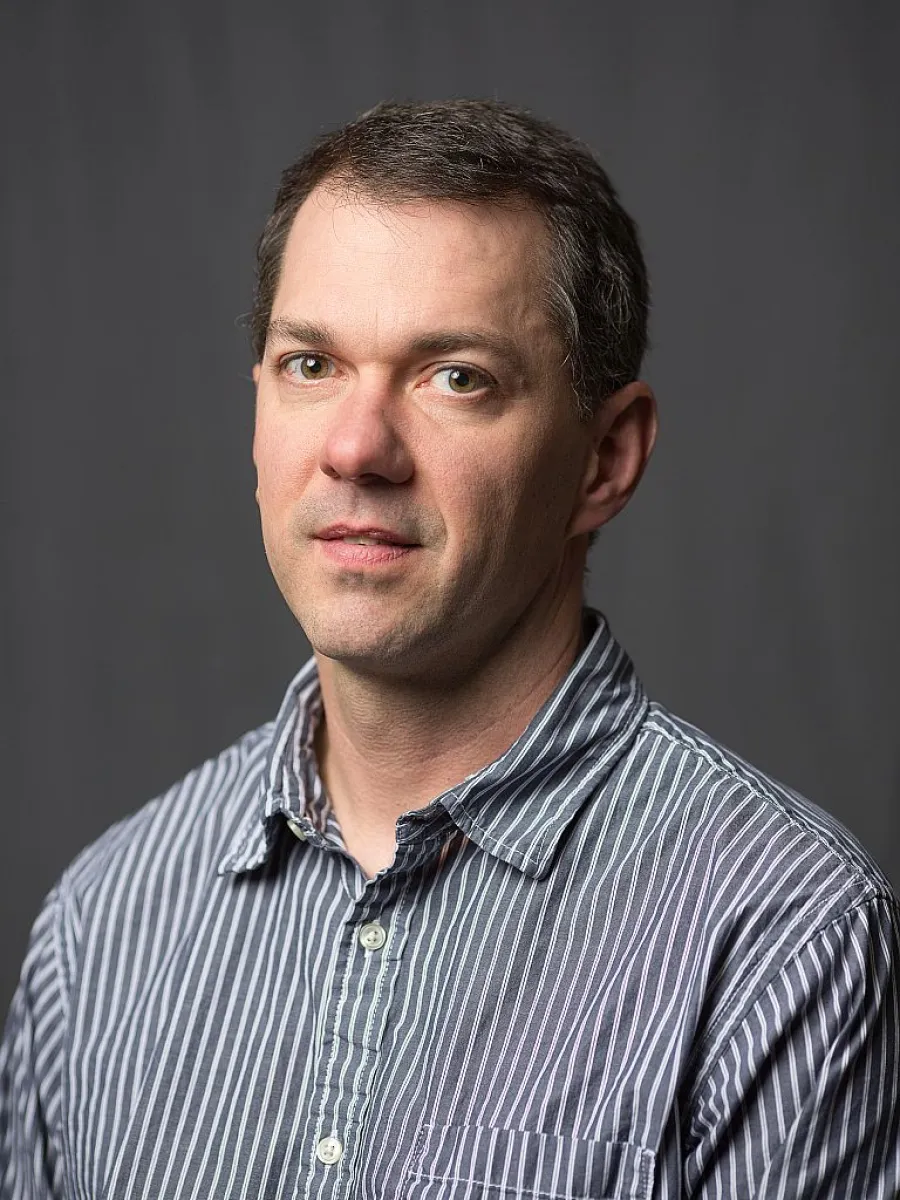
Michael Martin
Professor
michaema@nmu.edu 906-227-1179Office Location:
105 D4 Jacobetti Complex
Degrees:
- B.S., M.S., Michigan Technological University
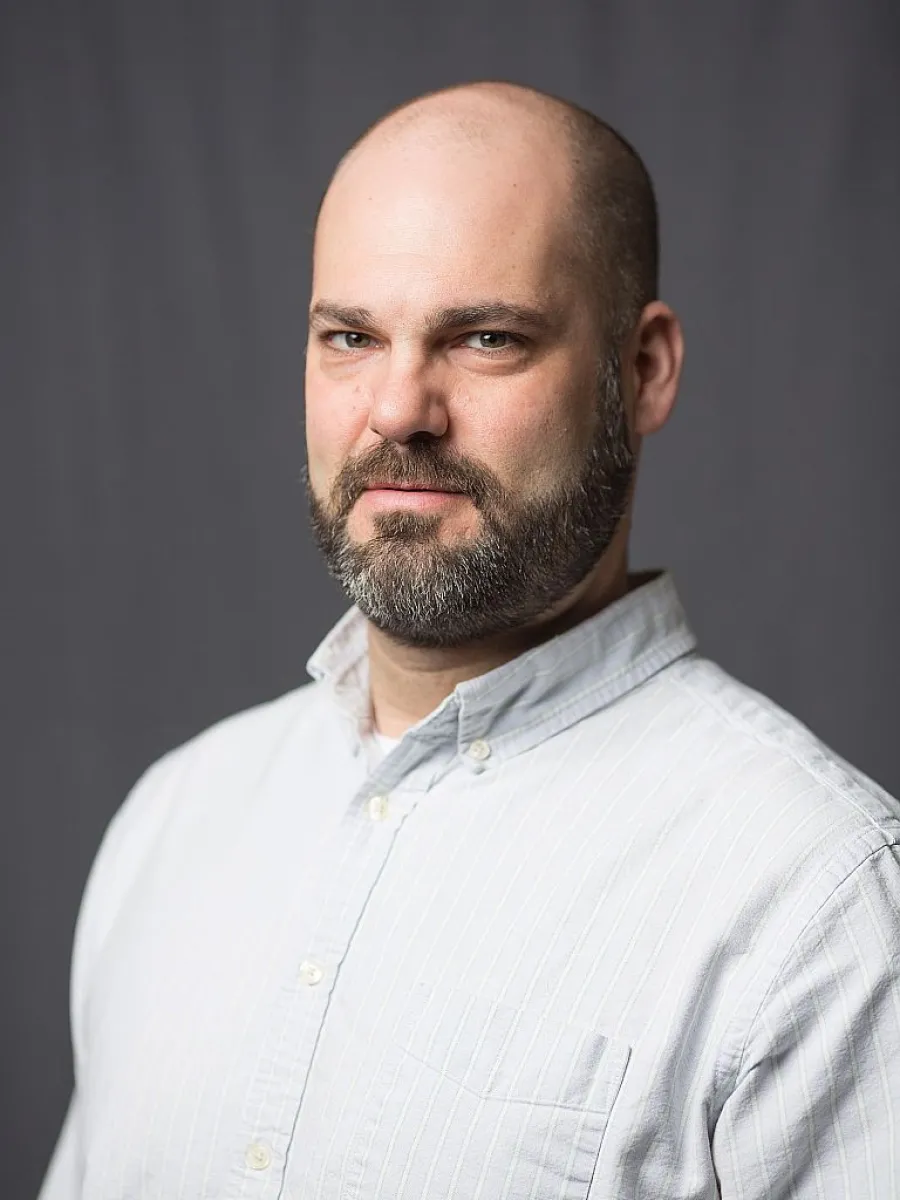
Cale Polkinghorne
Professor
cpolking@nmu.edu 906-227-2552Office Location:
301A Jacobetti Complex
Degrees:
- B.S., M.A.E., Ed.S., Northern Michigan University
- Ed.D., Central Michigan University
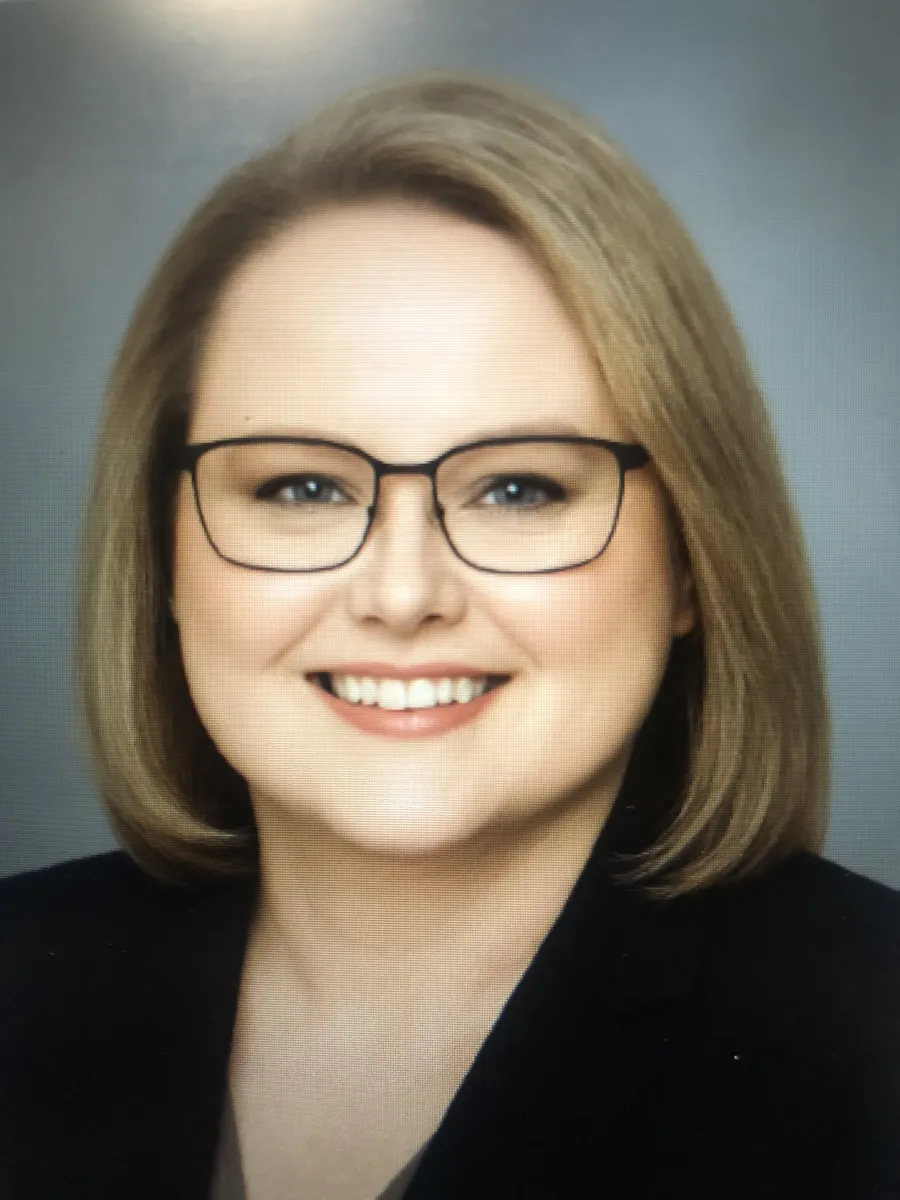
Deanna Pozega
Associate Professor
dpozega@nmu.edu 906-227-2126Office Location:
203A Jacobetti Complex
Degrees:
- B.S.E.E., M.S.E.E.., Michigan Technological University
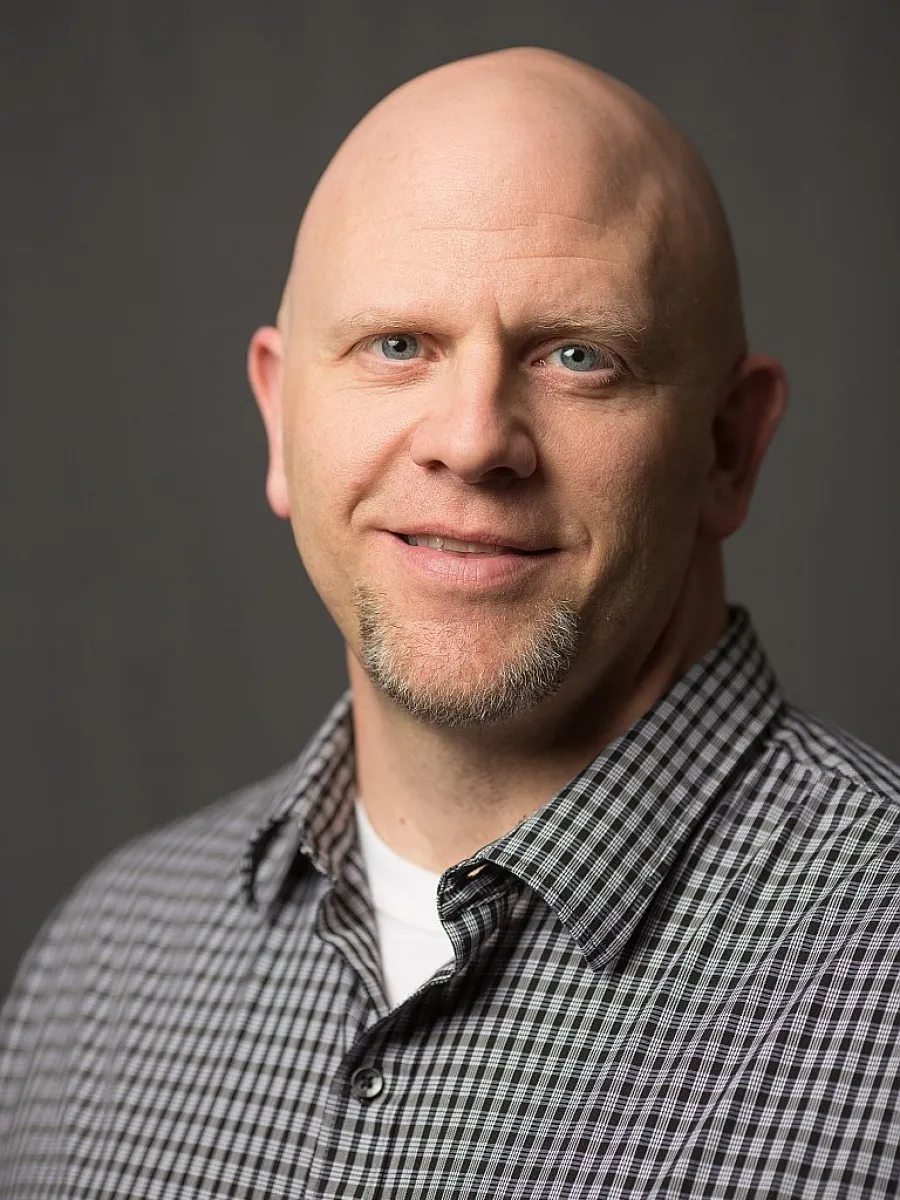
Joe Routhier
Instructor
jrouthie@nmu.edu 906-227-1576Office Location:
105 D5 Jacobetti Complex
Degrees:
- A.S., Michigan Technological University
- B.S., M.S., Ed.S., Northern Michigan University
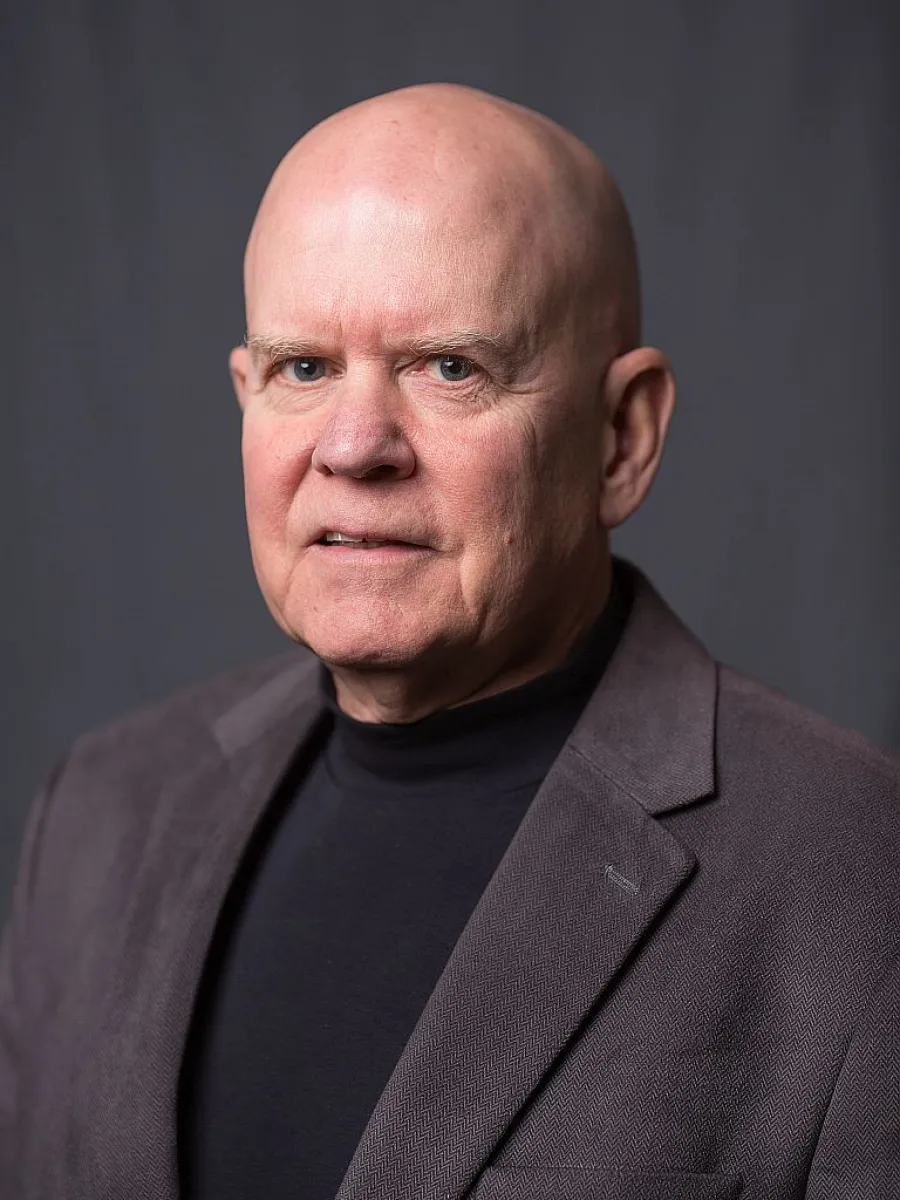
Michael D. Rudisill
Professor
mrudisil@nmu.edu 906-227-1763Office Location:
105 D3 Jacobetti Complex
Degrees:
- B.S.E.E., University of Illinois
- M.S.E.E., Air Force Institute of Technology
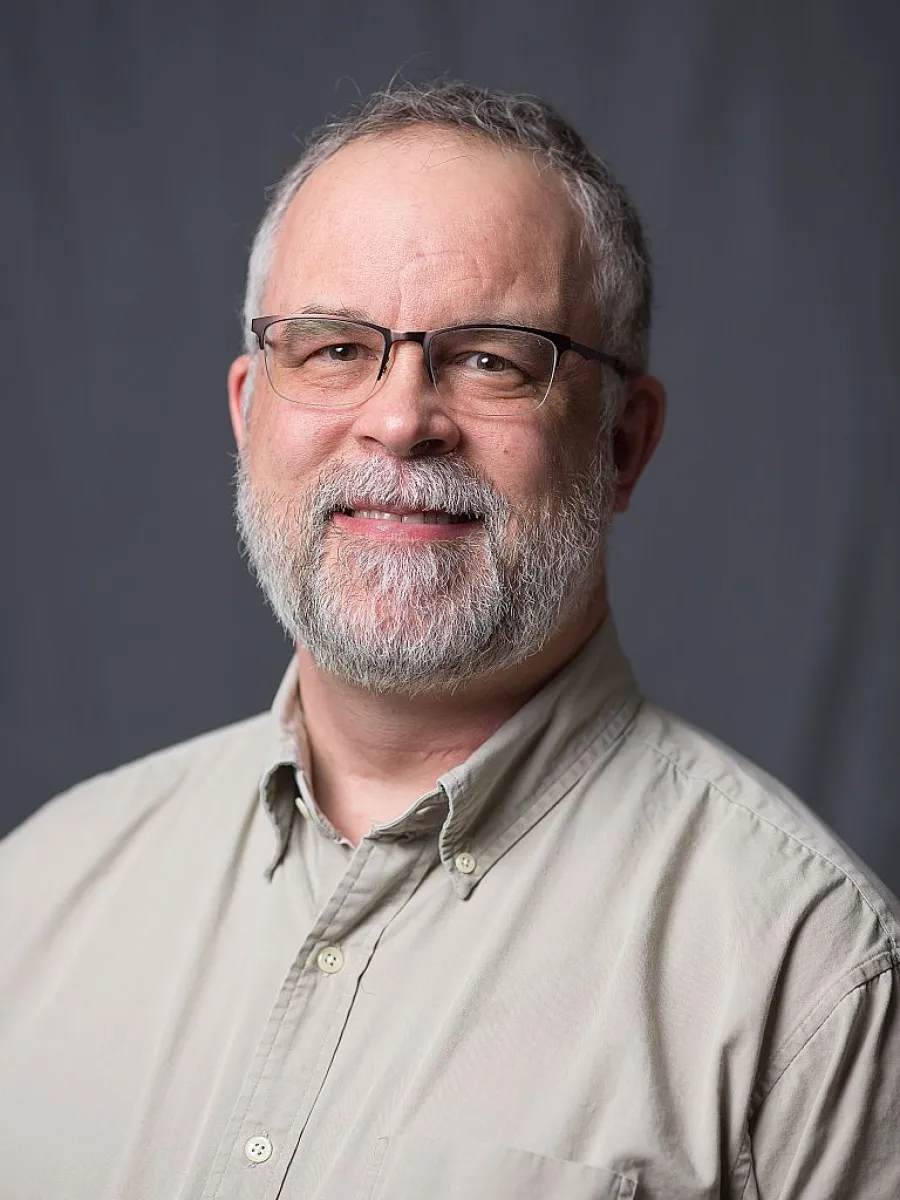
Glenn Wrate
Professor
gwrate@nmu.edu 906-227-2186Office Location:
306A Jacobetti Complex
Degrees:
- B.S.E.E., M.S.E.E.., Ph.D., Michigan Technological University
Adjuncts Instructors
Office Staff
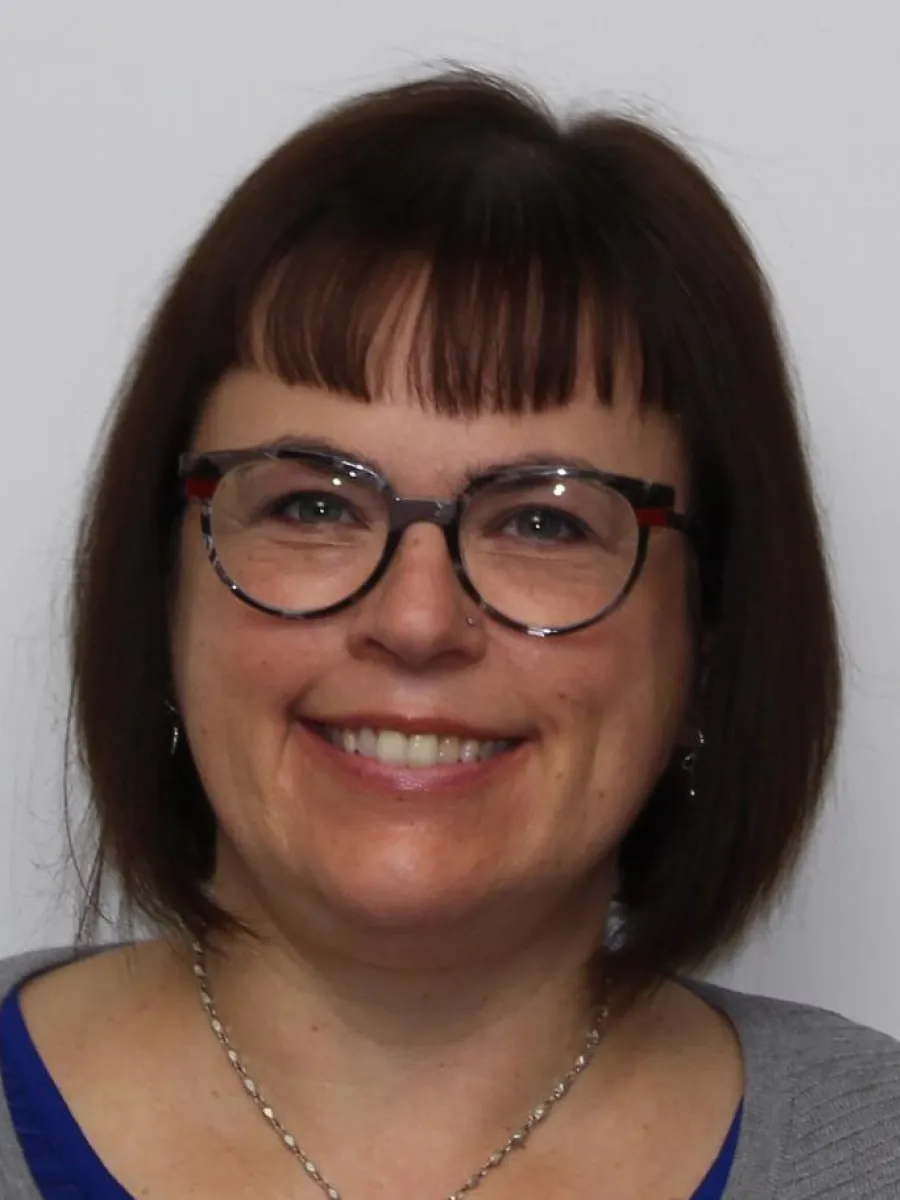
Kristi McClure
Executive Administrative Assistant
kmcclure@nmu.edu 906-227-2141Office Location:
105 Jacobetti Complex
Degrees:
- A.B., Northern Michigan University
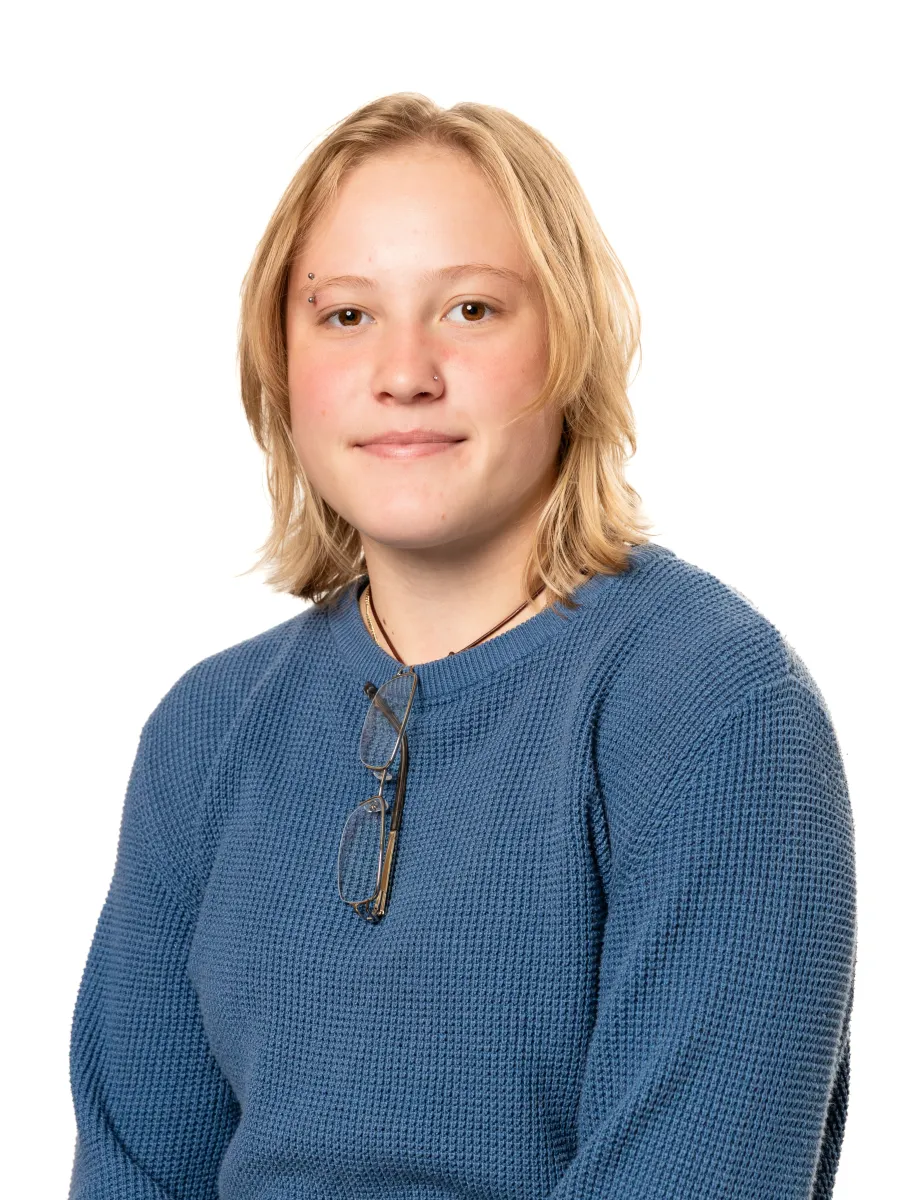
Grace
Student Office Assistant
Major:
Construction Management
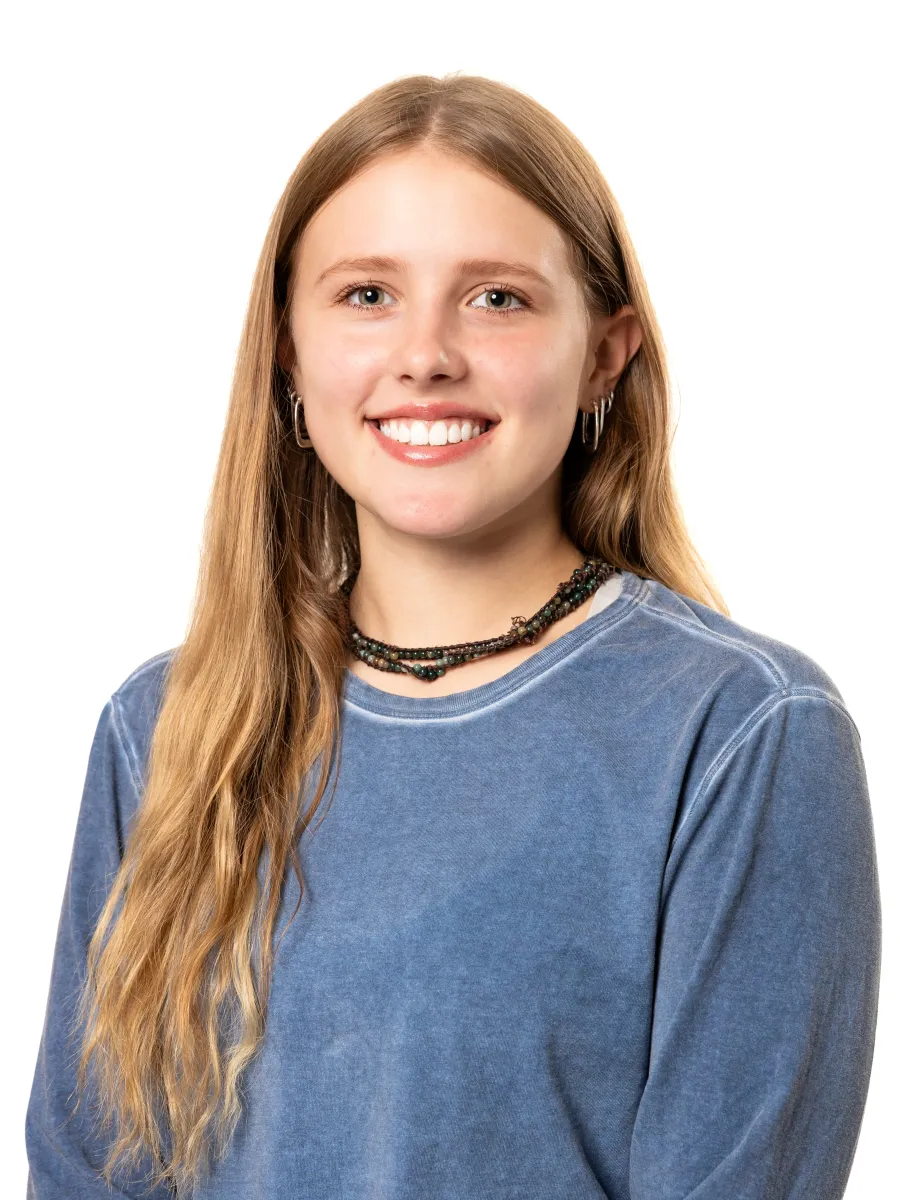
Lilly
Student Office Assistant
Major:
Mechanical Engineering Technology
Success Advisors

Senior Success Advisor
To publish the bylaws of the Engineering Technology Department: approved by Interim Provost & Vice President, Dr. Paul Lang, September 27, 2011.
To publish the bylaws of the Engineering Technology Depoarment; approved by Kerri Schuiling, Provost & vice President, May 20, 2016
Department Engineering Technology Bylaws
ARTICLE l. DEPARTMENTAL MEMBERSHIP
1.1 Membership in the Engineering Technology Department consists of all persons holding academic rank in the department.
1.2 Voting membership shall consist of all full time faculty, who are represented by the AAUP and whose letter of appointment was to the Engineering Technology Department.
1.2.1 A member of the Engineering Technology Department on official leave of absence or sabbatical retains all membership rights, except as otherwise provided by the AAUP/NMU Agreement.
1.3 Voting membership shall be extended to those with joint appointments in the Engineering Technology Department provided that their primary appointment is to the Engineering Technology Department. If their secondary appointment is to the Engineering Technology department, voting membership may be extended to them providing such status has been approved by two-thirds vote of the full voting membership of the Engineering Technology Department.
ARTICLE II. MEETINGS
2.1 Regularly scheduled departmental meetings shall be held no more often than bi-weekly at an appropriately scheduled time during the academic year.
2.1.1 The Department Head can call additional meetings to address a specific topic at any time during the academic year.
2.1.2 All faculty members shall be provided with a formal agenda 48 hours (two working days) prior to a scheduled meeting.
2.2 Upon the request of 25 percent of the voting membership of the Department, the Department Head shall convene a departmental meeting within five working days of the request.
2.3 A quorum consisting of at least two-thirds of the voting faculty members of the Department shall be required for the transaction of business at a meeting.
2.4 An invitation to participate in specific departmental meetings may be extended to specifically identified individuals by a two-thirds vote of the departmental membership.
2.5 Conduct of the proceedings of all department meetings shall be governed by “Roberts’ Rules of Order”, unless the rules are suspended by a majority vote of the members present.
2.6 Minutes will be recorded and provided to each faculty member within five working days following the meeting.
2.7 A department member not in attendance at a meeting may use a proxy vote through a written statement assigned to a designated member of the department.
ARTICLE III. OFFICERS, COMMITTEES AND DEPARTMENTAL POLICY
3.1 Department Head
3.1.1 The Department Head functions as the chief executive officer of and for the Department. In addition to those functions that are specified by the Board of Trustees and the Agreement, the departmental faculty may request the Department Head to speak for them on matters of departmental concern.
3.1.2 When selection procedures for a new Department Head are warranted, a candidate for Department Head must receive the endorsement of greater than 50% of the full voting membership before that individual can be declared recommended to the Dean.
3.2 Academic Senate Representative
3.2.1 In accordance with the Bylaws of the Academic Senate, the Department shall elect a representative, with the candidate’s approval, to the Academic Senate.
3.2.1.1 The Department Head shall communicate the name of the representative to the Secretary of the Academic Senate.
3.2.2 The Academic Senate representative may be recalled by a two-thirds vote of the full voting membership.
3.3 Bargaining Council Representative
3.3.1 The department shall elect a Bargaining Council Representative, with the candidate’s approval, to serve as a spokesperson for the department for a 3 year term. An election to determine the Bargaining Council Representative shall be held within one month of the announcement by the AAUP Executive Committee of the need for a representative.
3.4 Business conducted by the Faculty Committees.
3.4.1 Ad hoc and standing committees necessary to facilitate the business of the Department may be elected by the voting membership. These specially convened committees will report to the department functioning as a Committee of the Whole.
3.4.2 Faculty Selection Committee - There will be a selection committee whose function shall be to recommend candidates to fill open faculty positions. Following the authorization to recruit for a faculty position and after discussion with the Dean regarding criteria, the committee shall involve itself with formulation of the criteria to be met by the candidate. The faculty will be involved with publication of the position opening, screening of applicants, and selection of the final candidate(s). The selection of a recommended candidate(s) shall be approved by two-thirds of the full voting membership. The Selection Committee shall advise the Dean, through the department head, of the name of the recommended candidate(s).
3.4.3 Faculty Evaluation Committee shall be responsible for conducting peer teaching evaluations and annual faculty evaluations, as well as evaluating promotion, tenure, and continuing contract applications. The committee shall be comprised of three voting members, one of which must be tenured or have continuing contract status. Membership on the committee shall be for three years with a new member being elected annually and a rotating chairperson. A faculty member will serve as chairperson during the third year of serving on the committee. The chairperson is not required to have tenure or continuing contract status. When considering promotion and tenure decisions, the evaluation committee shall solicit the input of all voting department members. However, the Faculty Evaluation Committee makes the final decision.
3.4.3.1 Members of the committee who are seeking promotion or tenure shall be temporarily replaced for the fall semester.
3.5 Student Grievances
3.5.1 Procedures for dealing with student grievances are outlined in the student handbook.
3.6 TEACHING ASSIGNMENTS
3.6.1 Teaching assignments and course schedules shall be developed as per the Master Agreement after consultation with the faculty member. A full teaching load shall normally consist of 24 credit hours during the academic year. Other professional responsibilities such as advising and committee assignments shall be in conformance with article VI of the AAUP/NMU Agreement.
3.6.1.1 Spring and or summer session teaching assignments may be assigned as part of the teaching load with the mutual written agreement of the faculty member, Department Head and consistent with Article 6.1.1.1.2 of the AAUP/NMU agreement.
3.6.1.2 Campus overloads, extension courses, spring or summer courses and other similar “extra income” teaching opportunities shall be assigned as per the procedures specified in Article IX of the AAUP/NMU agreement.
3.6.1.2.1 Article IX of the AAUP/NMU agreement specifies that term faculty have preference for the above opportunities during fall and winter semesters, while tenure-track and tenured faculty have preference for summer opportunities.
3.6.1.2.2 In the instance in which one of the opportunities from section 3.7.1.2 is desired by multiple faculty members with common preference based on 3.7.1.2.1, a list will be created based upon length of service to NMU. The faculty member at the top of the list will be granted the opportunity and will be placed at the bottom of the list for future opportunities.
3.6.1.3 Reassigned time credit – A faculty member may accumulate reassigned time credit as outlined in the Master Agreement section 6.1.1.6.
3.6.1.4 Credit Hour Allocation – Department Heads, after meeting with the department are responsible for developing mutually agreeable written guidelines to structure assignments that will take into account large sections in single courses, number of preparations, nature of preparations, laboratory supervision and planning, supervision of special learning activities, supervision of field activities, clinical experience, number of advisees, or administrative duties, and other assigned responsibilities. These guidelines will be reviewed annually, as outlined in the Master Agreement, section 6.1.1.1.
3.7 Departmental Budget
3.7.1 The Department Head will review the Department’s General Operational Budget with the faculty at the beginning of each academic year. This review will also include an accounting of the previous academic year’s major expenditures (i.e. over $500).
3.7.2 The Master Agreement, article VI, will be followed for allocation of professional development monies
3.7.2.1 Faculty travel monies not expended during the current fiscal year may be carried forward for individual faculty members’ professional development for a maximum of two (2) fiscal years. Thus, a faculty member has available funds from the current year and the previous 2 years. Monies not expended within the time limit will be placed into a departmental pool for travel and professional development. The amount of monies available in the departmental pool will be identified during the first week of the fall semester of each year. Faculty members can submit a written request to the Department Head and the department acting as a Committee of the Whole for use of these funds.
ARTICLE IV. FACULTY APPOINTMENT, PROMOTION AND TENURE
4.1 Terminal Degree and Exceptions
4.1.1. The Engineering Technology department recognizes the EDD or PhD in an appropriate area of training, education, engineering or technology as the terminal degree. A Masters Degree plus registration in the State of Michigan as a Professional Engineer also meets the terminal degree requirement.
4.2 Initial Appointment Criteria
4.2.1 Instructor - Initial appointment as an instructor requires an earned Masters Degree from an accredited institution. The degree must be in an area appropriate to the individuals teaching assignment and to the mission of the Engineering Technology Department.
4.2.1.1 Special Instructor - In unique circumstances a person with special qualifications working towards a Master’s Degree may be hired in a non-tenure term position as a special instructor.
4.2.2 Assistant Professor
4.2.2.1 Initial appointment as an Assistant Professor requires a terminal degree (section 4.1.1).
4.2.3 Associate Professor
4.2.3.1 Initial appointment as an Associate Professor requires a terminal degree (section 4.1.1) and six (6) years of full-time higher education experience at the rank of Instructor or above. Exceptions may be made because of unusual scholarly and/or professional achievements.
4.2.4 Professor
4.2.4.1 Initial appointment as a Professor requires a terminal degree and twelve (12) years of full-time higher education experience at the rank of Instructor or above. Exceptions may be made because of unusual scholarly and/or professional achievements.
4.3 Promotion and Tenure Applications
4.3.1 Applicants for promotion and/or tenure shall follow the procedures and processes outlined in Sections 5.4, 5.5, 5.6 and 5.7 in the Master Agreement.
4.4 Judgmental Criteria for Promotion and/or Tenure
4.4.1 The broad outlines of the judgmental criteria for promotion and tenure, focusing on the three judgmental areas of (1) assigned professional responsibilities, (2) scholarship and/or professional development, and (3) service, are found in Section 5.6.3 of the Master Agreement. Section 5.5.6.b. of the Master Agreement states that "Scholarship and/or professional development is one category and the relative amounts of scholarship and professional development will be specified in departmental bylaws”. In recognizing that Professional Development and Scholarship are closely linked, criteria for performance in this area is specified in section 4.6 of this document. The more specific criteria contained in these bylaws, including the examples used, must be understood to amplify the language in the Master Agreement, not diverge from it.
4.4.2 The following examples are not intended to be complete or ordered by rank. Other types of activities may be considered. The lists include common types of activities and are meant to establish a norm. When a promotion is being considered, a history of sustained professional achievements of the types listed, or comparable ones, will be expected.
Note: Some of the activities listed as achievements in the scholarship/professional development and service areas of evaluation can vary significantly in their merits. Which activity, or combination of activities, merits successful attainment of those criteria may be a matter for qualitative judgment.
4.4.3 The demonstration of achievements for promotion and/or tenure are cumulative in accordance with the guidelines outlined in Article V of the AAUP Master Agreement.
4.5 Teaching and Assigned Responsibilities
4.5.1 Upon application for promotion, the faculty member shall note how their performance over the evaluation period meets each of the following criteria.
4.5.1.1 Incorporates student feedback when revising course content and learning experiences
4.5.1.2 Incorporates feedback garnered from peers to improve teaching and advising effectiveness
4.5.1.3 Creates a positive learning environment through good organization and appropriate use of instructional strategies, techniques and educational technologies
4.5.1.4 Demonstrates a solid understanding of the subject matter taught, and of the materials used as part of the courses
4.5.1.5 Is available to students for consultation outside of class.
4.5.1.6 Effectively advises students.
4.5.2 Additional activities that could be performed that improve teaching include the following.
4.5.2.1 Maintains a rapport with students that engages them in the learning process and promotes their professional and personal development.
4.5.2.2 Produces instructional materials and aids for use in the classroom or laboratory.
4.5.2.3 Develops new course offerings and makes appropriate course revisions.
4.5.2.4 Designs laboratory, field and/or class exercises, manuals, online courses, study guides, slide sets, equipment.
4.5.2.5 Willingly provides students with educational opportunities that would not otherwise be available, such as directed studies when needed.
4.5.2.6 Provides effective direction of student research projects, theses and/or file papers.
4.5.2.7 Incorporates information and materials gained from research and/or professional development experiences into course offerings
4.5.2.8 Becomes involved, in extension, ITV, online, and/or distance education efforts of the university
4.6 Scholarship and/or Professional Development
4.6.1 As stated in the section 5.5.6.b. of the AAUP Master Agreement, Scholarship and/or Professional Development is one category. Due to the rapidly changing field of engineering technology, and the need for engineering education to keep up with this change, Professional Development is more highly valued than Scholarship. However, it is recognized that an appropriate level of scholarship yields significant value to the students, program, department, and university. Through selection of the various activities below, the faculty member can tailor their activities to what is most appropriate for their specific function within the department, in accordance with article V of the Master Agreement.
4.6.2 Scholarship involves one or more of the four forms of scholarship: the scholarship of discovery; the scholarship of integration; the scholarship of application; the scholarship of teaching. These forms or scholarship are detailed in the Master Agreement, section 5.5.6. The department recognizes activities listed in sections 4.6.4, 4.6.5, and 4.6.6 as scholarship and are denoted by the abbreviation (S). Professional development activities are denoted by (P).
4.6.3 Upon application for promotion, the faculty member shall note how their performance over the evaluation period meets qualifications in one of the following 3 levels.
4.6.3.1 Level I Activity: Minimum of 4 Category B activities, 2 of which must be peer-reviewed scholarship activities, and 6 Category B or C activities
4.6.3.2 Level II Activity: Minimum of 2 Category B activities, 1 of which must be a peer-reviewed scholarship activity, and 4 Category B or C activities
4.6.3.3 Level III: Minimum of 1 category B activity, which must be a peer-reviewed scholarship activity, and 2 Category B or C activities
4.6.3.4 Note: a single Category A activity is considered the equivalent of 4 Category B activities
4.6.4 Category A
4.6.4.1 Published textbook in the appropriate field (S)
4.6.4.2 Receipt of a Ph.D or Ed.D advanced degree in the engineering or technical education field, unless this degree is required in the initial letter of appointment (P)
4.6.4.3 Receipt of a MS or MA advanced degree in the engineering or technical education field, unless this degree is required in the initial letter of appointment (P)
4.6.4.4 Lead investigator in the application and receipt of major (greater than $500,000) external grant (S)
4.6.5 Category B
4.6.5.1 Peer reviewed professional journal article (S)
4.6.5.2 Peer reviewed magazine article (S)
4.6.5.3 Peer reviewed conference presentation (S)
4.6.5.4 Lead investigator in the application and successful receipt of external grant (S)
4.6.5.5 Peer reviewed conference proceeding publication in the conferences such as; Institute of Electrical and Electronics Engineering (IEEE), Society of Automotive Engineers (SAE), American Society of Mechanical Engineers (ASME) and American Society of Engineering Education (ASEE), Forest Products Society (FPS), Society of Manufacturing Engineers (SME), and American Society of Civil Engineers (ASCE) (S)
4.6.5.6 A significant (greater than 80 hours) employment or consulting activity in the appropriate field, consistent with article 6.6, that results in a tangible peer reviewed artifact. Multiple consulting activities are permitted. (S)
4.6.5.7 A significant (greater than 80 hours) employment or consulting activity in the appropriate field. Multiple consulting activities are permitted. (P)
4.6.5.8 Evidence of national or international recognition of achievement in the appropriate field (P)
4.6.5.9 Lead investigator in the application and receipt of an external grant. (S)
4.6.5.10 Industry collaboration in a research or a development project that results in a tangible peer-reviewed artifact (S)
4.6.5.11 Industry collaboration in a research or development project. (P)
4.6.6 Category C
4.6.6.1 Conference proceeding publication in conference other than listed above (S)
4.6.6.2 Other published work that contributes to the advancement of the profession (S)
4.6.6.3 Application and successful receipt of NMU internal grant (S)
4.6.6.4 Application for an external grant (S)
4.6.6.5 Published book review (S)
4.6.6.6 Conference presentation (S)
4.6.6.7 Development and delivery of a seminar in an appropriate field (S)
4.6.6.8 Consistent attendance (approximately every other year) over the evaluation period at professional development conference(s) in the appropriate field (P)
4.6.6.9 Paid or unpaid employment or consulting activity in the appropriate field (P)
4.6.6.10 Research productivity as evidenced by reports submitted to granting agencies, government bodies, etc (S)
4.6.6.11 Attendance at an educational class or seminar, including web-based activities, in the appropriate field (P)
4.6.6.12 Participation in fulfilling the requirements of an external grant activity lead by others (S)
4.6.6.13 Initial receipt of professional engineer license, unless this is required in the initial letter of appointment (P)
4.6.6.14 Participation in student research or design projects (S)
4.6.7 It is recognized that the above lists are not comprehensive. Upon completion of a professional development or scholarship activity that is not listed above, the faculty member shall provide explicit details as to what the activity was and propose the appropriate category for the activity in the annual evaluation that covers the period in which the activity was performed.
4.7 Professional Service
4.7.1 Upon application for promotion, the faculty member shall note their how their performance over the evaluation period meets qualifications in one of the following 3 levels.
4.7.1.1 Level I Activity: Minimum of 2 Category A, 4 Category B activities and 6 Category B or C activities
4.7.1.2 Level II Activity: Minimum of 1 Category A, 2 Category B activities and 4 Category B or C activities.
4.7.1.3 Level III Activity: Minimum of 1 category B activity and 2 Category B or C activities.
4.7.1.4 Note: a single Category A activity can be considered the equivalent of 2 Category B activities, but cannot be “double counted.”
4.7.2 Category A
4.7.2.1 Chair university, college or departmental committees for 2 years. For example, chairing a departmental committee for one year combined with chairing a college or university committee for one year constitutes a category A activity.
4.7.2.2 Serve as advisor for a student organization (for example SAE), that includes significant activity and support by the advisor, over a period of 2 years.
4.7.2.3 Lead a major department, college or university service project.
4.7.3 Category B
4.7.3.1 Serve as chair of department, college, or university committee (faculty search, bylaw revision, faculty review, accreditation, etc) for 1 year.
4.7.3.2 Serve as member of a department, college, or university committee for 2 years.
4.7.3.3 Serve as a major officer or staff person contributing to the vitality of a major college or university committee by writing significant reports, proposals, etc. for that committee.
4.7.3.4 Significant amount of effort (>40 hrs/semester) expended in the purchase/maintenance/installation of lab equipment used in research or education, over the evaluation period, unless considered as part of the faculty members academic load
4.7.3.5 Serve as an officer of a professional organization, either local, regional or national or performing other noteworthy service for such an organization.
4.7.3.6 Significant amount of effort (greater than 80 hrs) expended on a special project in support of university, college, or department initiative
4.7.4 Category C
4.7.4.1 Moderate amount of effort (greater than 10 hrs/semester) expended in the purchase/maintenance/installation of lab equipment used in research or education, over the evaluation period
4.7.4.2 Moderate amount of effort expended on a special project in support of university, college, or department initiative
4.7.4.3 Significant and consistent support of university, college, or department initiatives
4.7.4.4 Direct or organize workshops, symposia and seminars
4.7.4.5 Involvement in programs with elementary or secondary schools or other elements of the community, including judging at science or technology competitions.
4.7.4.6 Assist in student recruitment and retention activities or serving in a leadership role in major efforts of this sort.
4.7.4.7 Provide expertise in appropriate field to community organization.
4.7.4.8 Support of a professional organization through participating in peer-review activities, conference session coordination, or other organizing activity in support of the organization’s initiatives.
4.7.4.9 As a general guideline, a time commitment of 15-20 hours for each of the category C activities is expected, unless otherwise specified.
4.7.5 It is recognized that the above lists are not comprehensive. Upon completion of a service activity that is not listed above, the faculty member shall provide explicit details as to what the activity was and propose the appropriate category for the activity in the annual evaluation that covers the period in which the activity was performed.
4.8 Promotion to Assistant Professor
4.8.1 An applicant for promotion to Assistant Professor must fulfill the basic requirements for initial appointment to that rank (4.2), and demonstrate as a minimum:
4.8.1.1 Effective Performance in Teaching and other assigned responsibilities as shown by satisfying guidelines 4.5.1.1 to 4.5.1.6
4.8.1.2 Scholarship and/or Professional Development
4.8.1.2.1 When an emphasis: Level III Activity (4.6.3.3). Otherwise: evidence of scholarly and/or professional development activity as confirmed by attendance at relevant conferences of the discipline and progress toward the accomplishment of goals for “scholarship and/or professional development” as agreed in prior annual evaluations
4.8.1.3 Service
4.8.1.3.1 When an emphasis: Level III Activity (4.7.1.3). Otherwise: departmental, university or professional service as confirmed by Category C (4.7.4).
4.8.2 Eligibility to apply for promotion to Assistant Professor requires a terminal degree, or unusual scholarly achievements or unusual professional service achievements.
4.9 Promotion to Associate Professor
4.9.1 An applicant for promotion to Associate Professor must fulfill the basic requirements for initial appointment to that rank (4.2), or meet the requirements in 4.9.2 below, and must demonstrate:
4.9.1.1 Effective Performance in Teaching and other assigned responsibilities as shown by satisfying guidelines 4.5.1.1 to 4.5.1.6
4.9.1.2 Scholarship and/or Professional Development
4.9.1.2.1 When an emphasis: Level II Activity (4.6.3.2), otherwise: Level III Activity (4.6.3.3)
4.9.1.3 Service
4.9.1.3.1 When an emphasis: Level II Activity (4.7.1.2), otherwise: Level III Activity (4.7.1.3)
4.9.2 Eligibility to apply for promotion to Associate Professor requires a terminal degree and, normally, five (5) years of full-time higher education experience at the rank of Instructor or above, or unusual scholarly achievements or unusual professional service achievements.
4.10 Promotion to Professor
4.10.1 An Applicant for promotion to Professor must fulfill the basic requirements for initial appointment to that rank (4.2) and must demonstrate:
4.10.1.1 Effective Performance in Teaching and other assigned responsibilities as shown by satisfying guidelines 4.5.1.1 to 4.5.1.6
4.10.1.2 Scholarship and/or Professional Development
4.10.1.2.1 When an emphasis: Level I Activity (4.6.3.1), otherwise: Level II Activity (4.6.3.2)
4.10.1.3 Service
4.10.1.3.1 When an emphasis: Level I Activity (4.7.1.1), otherwise: Level II Activity (4.7.1.2)
4.10.2 Eligibility to apply for promotion to Professor requires a terminal degree and, normally, eleven (11) years of full-time higher education experience at the rank of Instructor or above, or unusual scholarly achievements or unusual professional service achievements.
4.11 Tenure
4.11.1 An applicant for Tenure must meet the same judgmental criteria as an applicant for promotion to Associate Professor (4.9)
4.12 Continuing Contract Status
4.12.1 An applicant for Continuing Contract Status must meet the same judgmental criteria as an applicant for tenure, except that such faculty are evaluated in assigned responsibilities and departmental service only.
4.13 Annual Evaluation
4.13.1 Upon attainment of an activity in teaching or a Category A, B, or C activity in Service, or Professional Development and Scholarship, that activity needs to be clearly stated and supported in the faculty members annual evaluation.
4.13.2 This (section 4.13.1) may not apply to those activities that are fulfilled over a period of years (i.e. lab support, academic advising, general service support, participation in professional development conferences, teaching activities, etc). Participation in these multi-year activities should be noted in the annual evaluation, along with cumulative effort, and declared as successfully attained when appropriate.
4.13.3 If the evaluation committee or department head, disagrees with the faculty member’s assessment of their accomplishment in this activity, it must be noted in their annual evaluation of said faculty member. The faculty member may choose to address the concern in the current evaluation (Part 5 of the Faculty Evaluation Report)
4.13.4 The annual evaluation should include a professional development plan that details the annual goals of the individual
ARTICLE V. AMENDMENTS
5.1 Proposed amendments to these bylaws shall be circulated, to all members of the department at least one week prior to the meeting at which they are to be introduced and discussed. The amendments will be voted on no sooner than one week after they were presented and discussed
5.1.1 Proposed amendments shall be circulated only during the fall and winter semester.
5.1.2 A two-thirds (2/3) vote of the full department membership shall be required for adoption of amendments.
ARTICLE VI. RATIFICATION
6.1 These Bylaws shall become operating procedures for the Department following an affirmative vote of two-thirds of the full departmental membership as described in Article I of this document, and with the approval of the Provost/Vice President for Academic Affairs.
6.1.1 These Bylaws shall be subjected to any additional procedures specified in the AAUP Agreement.
| Last Revision: | 9-27-2011 |
| Last Reviewed: | 5-20-2016 |
